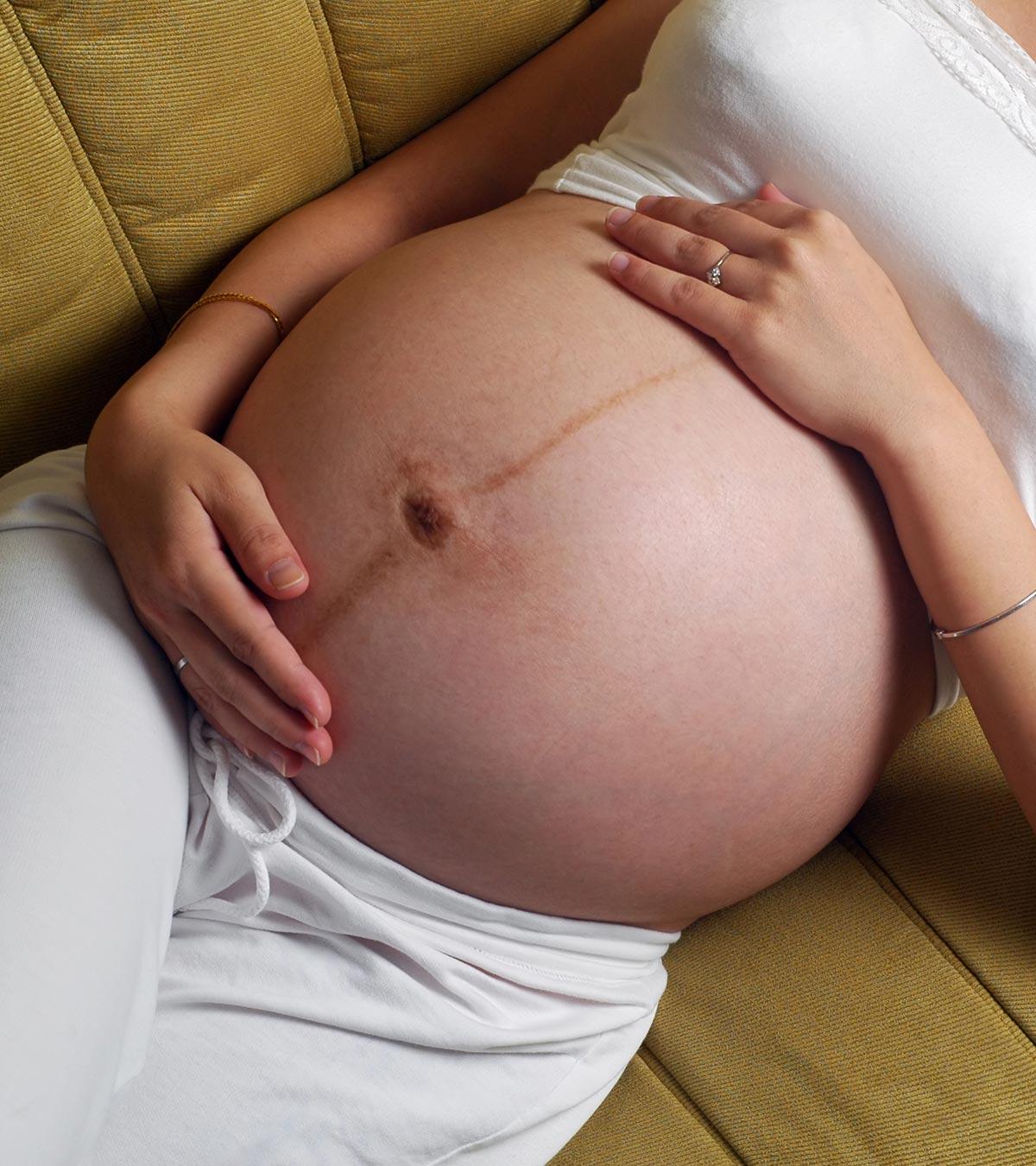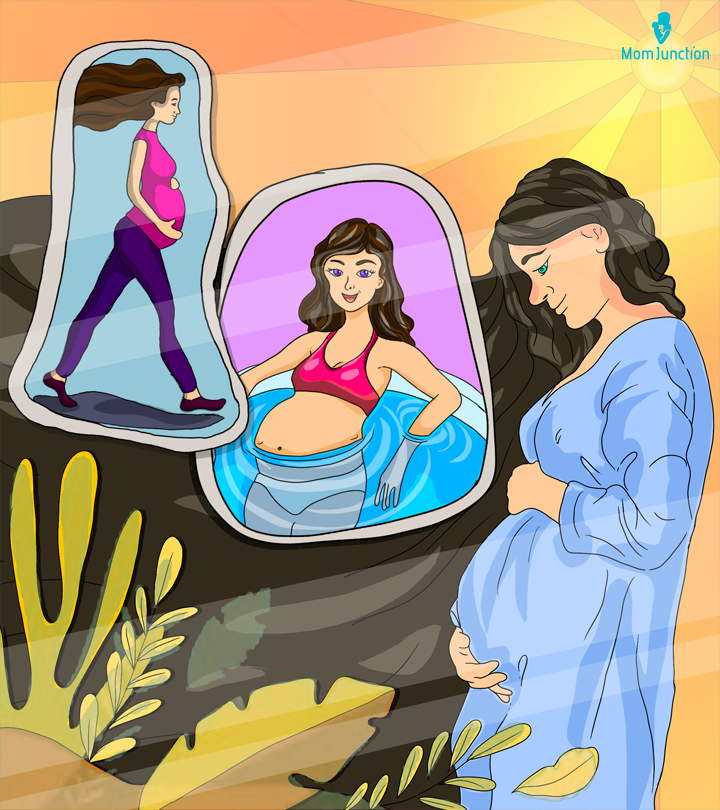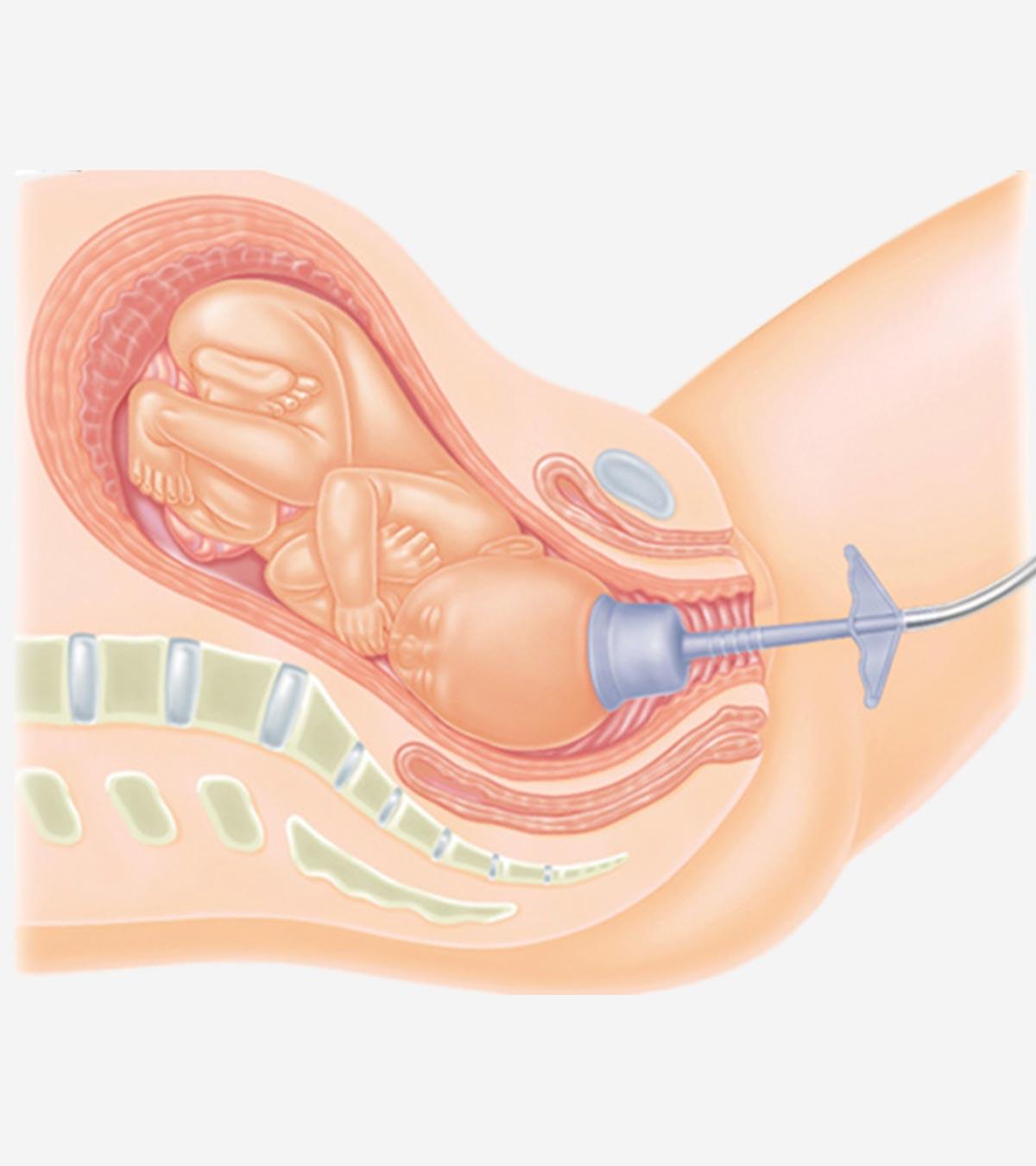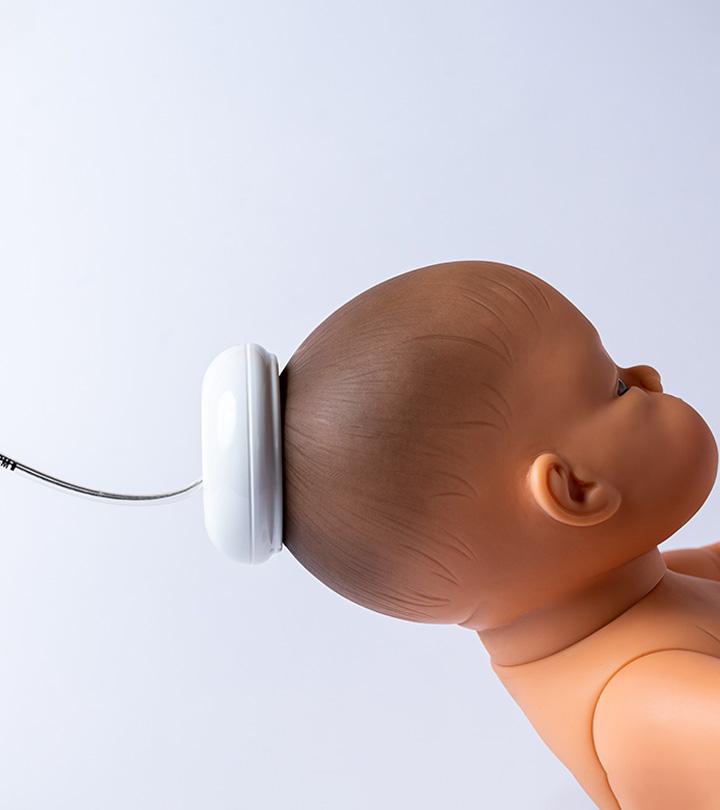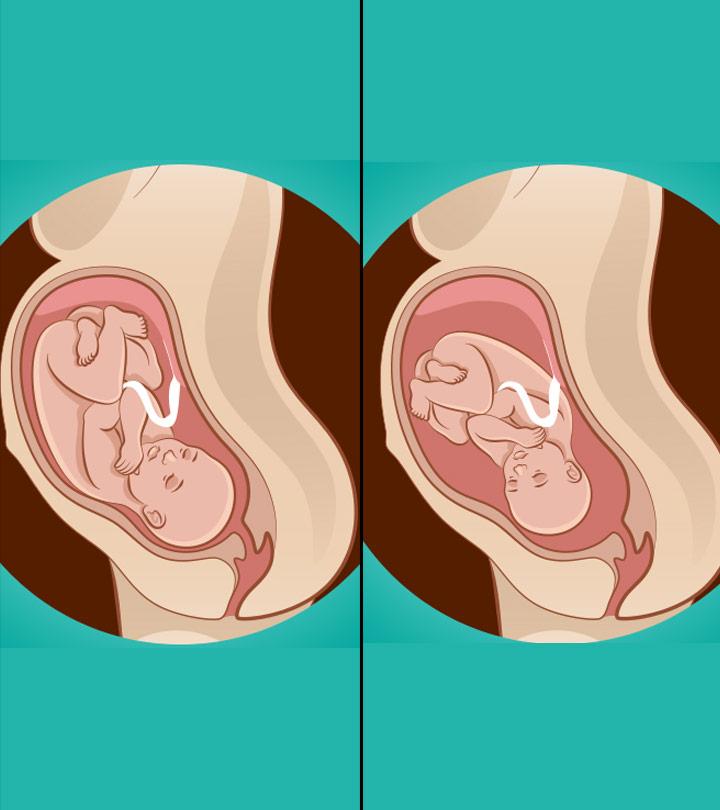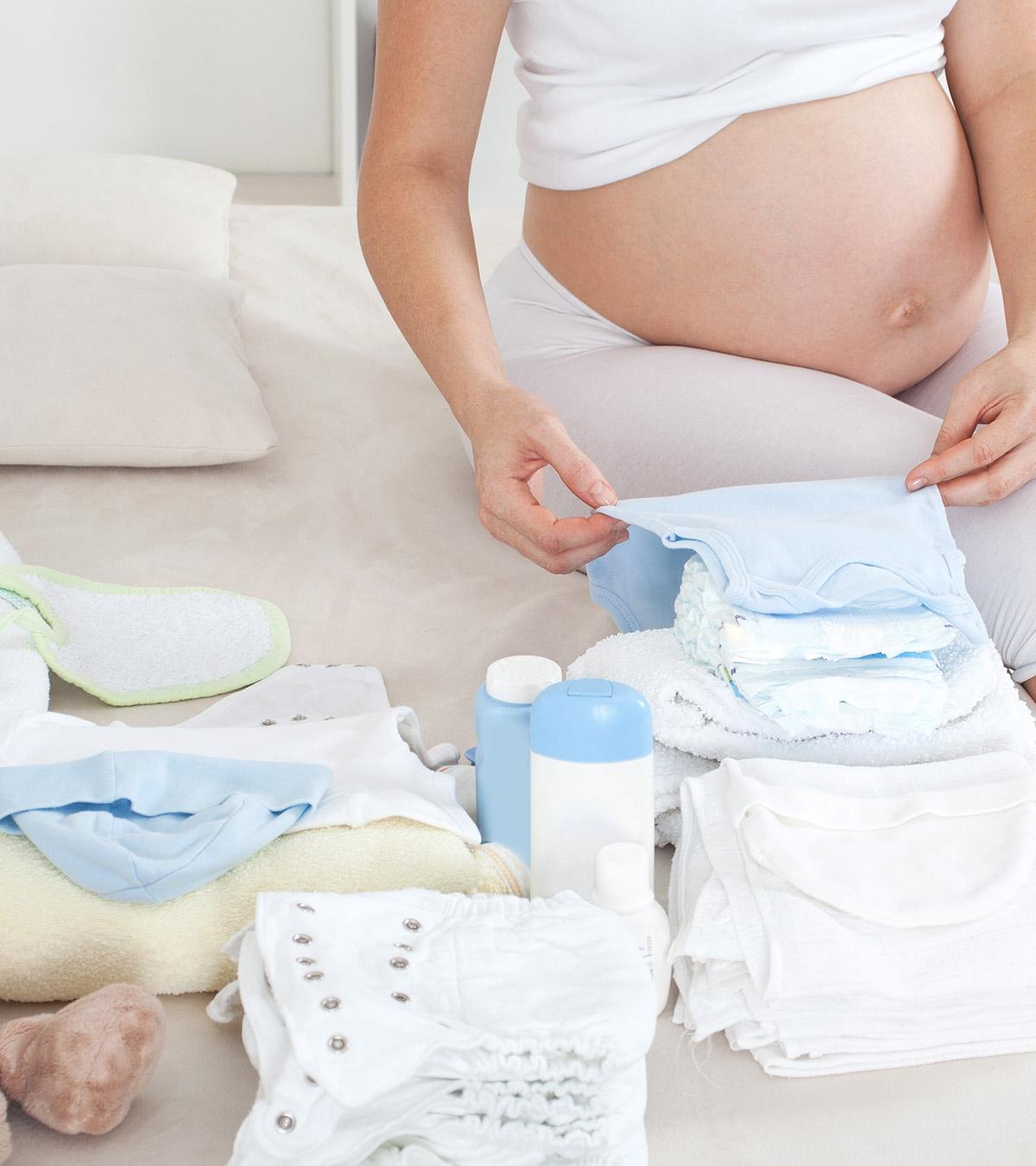
Image: Shutterstock
Low birth weight in babies is mainly caused due to premature birth. A baby is considered to have low birth weight when they weigh less than five pounds at birth, but it does not necessarily mean that your baby is unhealthy. Some babies born with lesser than normal weight are as healthy as other babies born with a stable weight. However, in some cases, these babies might be prone to serious deficiency diseases. Keep reading this post to know more about the reasons for low birth weight in newborns and ways to take care of them.
What Is Low Birth Weight?
Image: Shutterstock
Babies who are born weighing less than 2,500 grams (5 pounds, 8 ounces) are said to have low birth weight. The average weight of a baby at birth is around eight pounds. If babies are born between 37 to 42 weeks but weigh less, they are considered as low birth weight for a full term.
Low birth weight infants appear smaller than normal healthy birth weight babies and their head appears bigger than the rest of the body.
The term extremely low birth weight (ELBW) is used to describe babies born with weight less than 1,000 grams (2 pounds, 3 ounces). Usually, ELBW infants are born around 27 weeks of gestation or younger. They are known to be the youngest of premature new-borns.
Very low birth weight (VLBW) is used to describe babies who are born weighing less than 1,500 grams. The VLBW and ELBW conditions can happen to babies who are born prematurely (1).
According to the Lucile Packard Children’s Hospital (LPCH) at Stanford University, about eight percent of babies born in the US are known to have low birth weight. This figure is much higher in developing countries and is rising (2).
Based on data from the National Center for Health Statistics (NCHS), there is variation in the number of low birth weight (LBW) newborns across the United States. As the graph below indicates, Mississippi had the highest percentage of LBW babies (11.5%), while Alaska had the lowest.
Proportion of low birth weight newborns in the US (2018)
Source: Percentage of infants with low birth weight in the United States as of 2018, by state*; Statista/NCHS/United Health FoundationWhat Are The Causes Of Low Birth Weight In Babies?
Reasons for low birth weight could be many ranging from heredity to your health condition and diet habits during pregnancy:
1. Premature birth:
Image: IStock
A newborn is said to be premature when born before 37 weeks of pregnancy. A baby gains more weight in the later part of pregnancy. Therefore, babies born early will have less time to grow and develop in the mother’s womb. This is why premature babies weigh less or cannot gain an average weight (3).
2. Intrauterine growth restriction (IUGR):
Babies born with intrauterine growth restriction (also called fetal growth restriction (FGR)) are either small for gestational age or have a low gestational age (weight below the 10th percentile for gestational age). They are born full-term and still have a low birth weight which may be due to lifestyle or genetic factors (4).
Lorraine Lloyd, a mother and enthusiastic blogger shares about her daughter’s IUGR journey, “My daughter’s IUGR was picked up at the 20-week scan, along with an echogenic bowel, oligohydramnios (low amniotic fluid) and two vessels in the umbilical cord instead of one. I was warned I may need to make a decision on whether to terminate the pregnancy and referred for further tests. After three long and scary weeks of tests, including a specialist fetal renal scan in London to check her kidneys and a CVS (which ruled out genetic conditions that were ‘incompatible with life’), the conclusion was that the IUGR was being caused by placental insufficiency…. Somehow my little fighter made it to 36 weeks gestation and was delivered by c-section weighing 4lb 1oz, which meant she was classed as Small for Gestational Age (SGA) (i).”
3. Multiple pregnancies:
If you are carrying more than one baby, i.e., twins, triplets, or more, the individual weight of each baby could be below 2,500 grams. It is because the babies compete for nutrients, thereby putting excess strain on the mother (5).
4. High blood pressure:
If you have high BP, the blood flow to the baby from the placenta is interrupted, resulting in lower birth weight of the baby (6). According to a study by researchers from Northwestern University, the prevalence of hypertensive disorders in pregnant women doubled from 2007 to 2019 in the United States.
5. Intake of drugs or alcohol:
Consumption of nicotine, drugs or alcohol during pregnancy will affect the growth of the baby and thus impact her weight
. These substances release harmful chemicals in the placenta which alter the oxygen supply to the growing baby and therefore inhibit her growth and development (7). It can also increase a risk of perinatal mortality and congenital abnormalities (also known as birth defects).
6. Placental issues:
If you have any placenta-related problems like placenta previa (placenta lies unusually low in your uterus covering your cervix), placental insufficiency, or pre-eclampsia (pregnancy complication of high blood pressure and kidney damage), they also affect the flow of blood and nutrients to the fetus. Thus, these pregnancy complications may hamper fetal development, leading to unfavorable birth outcomes such as low birth weight (8).
7. Abnormalities of the uterus:
FibroidsiBenign uterine growths that may cause contractions and intense pelvic and back pain and uterine malfunctions would restrict the growth of the baby in the uterus (9).
8. Diabetes:
Diabetes is usually associated with a big baby, but it also results in preterm labor in some cases which will affect the baby’s weight (10).
9. Abnormalities of the cervix:
Cervix abnormalities can stimulate a preterm birth as it is under pressure to open up. It will, therefore, cause low birth weight in babies. However, doctors may treat this condition by putting a stitch called cerclage, and you are suggested to take complete bed rest (11).
10. Infections that develop during pregnancy:
It is quite common for you to contract infections during pregnancy. These diseases and drugs to treat them will have a significant effect on the baby’s birth weight (12).
11. Prior history:
If you have had a low birth delivery or pre-term delivery earlier, the chances for another low birth weight delivery are high (13).
12. Improper diet:
If you have not gained the required weight during pregnancy due to an imbalanced diet or malnutrition, there is a chance of having a low birth weight baby. A growing baby needs sufficient nutrients to develop, and maternal nutrition plays a prominent role in the baby’s development (14).
With careful nurturing and breast milk, some babies cover the shortfall in the first few months. However, for a few mothers their baby’s low weight continues to be a worry as it could have long-term effects.
 Quick fact
Quick factEffects Of Low Birth Weight On Child Development
Image: IStock
The effects vary from baby to baby and also depend on the cause of low birth weight. Some of the problems associated with newborn health are (15):
- Breathing difficulties such as infant respiratory distress syndrome (RDS).
- High risk of infections.
- Problems with feeding and weight gain.
- Low blood sugars (hypoglycemia).
- Increased red blood cell count which can make the blood thick.
- Inability to stay warm.
- Inadequate oxygen levels at birth.
- Gastrointestinal problems such as necrotizing enterocolitisiA serious disease characterized by the damage of intestinal tissues, typically affecting the preterm babies (intestinal disease).
- Neurological issues, including intraventricular hemorrhage (bleeding in the brain)
- SIDS (sudden infant death syndromeiSudden, unexpected, and unexplained demise of an infant under the age of one ),
Studies show that babies with a low weight may have lower intelligence quotient (IQ), perform poorly in academics and show behavioral problems. The lower the weight, the more pronounced are the problems (16).
Also, the child’s development or emotional effects will depend on:
- The cause of the baby’s low birth weight.
- The pregnancy stage at which the growth restriction occurred.
Low birth weight babies require special care in the neonatal intensive care unit (NICU) until they gain weight and become healthy. Babies with too low a birth weight, around 500 grams, have fewer chances of survival (17).
Low birth weight could sometimes be unavoidable. But if you know about the situation when the baby is in your womb, you will be able to take corrective measures. Certain tests during pregnancy can help you with it.
Diagnosis Of Low Birth Weight During Pregnancy
Doctors use various methods to estimate the weight of the fetus.
- Measurement of fundus: After the 20th week, your doctor will measure the height of the fundus of the uterus (the top portion measured from the top of the pubic bone). The dimension in centimeters relates with the number of weeks in pregnancy. If the height is low for the particular number of weeks, you are likely to bore a small baby (18).
- Ultrasound: It is not the primary screening for low birth weight. However, it categorizes low birth weight in the analysis. It primarily takes a picture of internal structures such as the baby’s head, femur, and abdomen (19).
Once you know about the low growth of your baby, you may want to change your lifestyle, food habits, take nutritious diet and do everything possible to correct the anomalies.
How Can You Prevent Low Birth Weight
Image: Shutterstock
The survival rate of low birth babies is increasing mostly due to the advancement in the care of premature and weak babies. However, prevention of low birth weight can be done by taking the following steps:
1. Begin prenatal care early:
Prenatal care is one of the best ways to avoid low birth weight babies and pre-term deliveries. It detects any medical illnesses such as preeclampsia and gestational diabetes, which affect the fetus growth. During a prenatal visit, the doctor monitors your weight gain, blood pressure, baby’s growth and fetal heart beat.
2. Healthy weight gain and nutrition:
Have a healthy and nutritious diet particularly in the beginning of your pregnancy. Increase intake of foods rich in folic acid, such as whole grains, fruits, and veggies. It helps in increasing the birth weight of the baby and makes you stay healthy.
3. Changes in lifestyle:
Maternal smoking and drinking increase the chances of having a baby with low birth weight. Stop drinking alcohol, smoking cigarettes and taking drugs. Have enough sleep and minimize stress for helping the fetus grow.
4. Keep the medical conditions under control:
You are more likely to have a baby with low birth weight due to high blood pressure or diabetes. Therefore, try to keep these pre-existing illnesses under control so as to minimize the risk.
If you have a low birth baby in spite of your efforts during pregnancy, you can continue with your good work after the baby is born! This time, however, there will be a change in the measures you take.
What You Can Do To Help Your Baby Overcome Low Birth Weight
Stop worrying about your baby’s weight and instead, be proactive.
- Breastfeed: Proper breastfeeding will not only improve your baby’s weight but also strengthens his immune system. Initially, they may require feeds every two hours, which can improve your infant’s health and overall nutritional status.
- Kangaroo mother care: It is a procedure of giving skin-to-skin contact to your baby by keeping them in between your breasts for as long as possible to give them warmth and protect them from infection.
 Did you know?
Did you know?- Take for regular checkups: Take your baby to the doctor regularly to understand his developmental milestones.
- Keep a close watch on the weight: As your baby gets older, check how he is gaining weight. If he gains weight drastically, then it might be dangerous as it causes weight and issues later in life.
- Strive for healthy weight gain: Stay away from giving added sugars or refined foods for him to gain weight. Stick to breastfeeding and nutrient supplements like calcium iron and multivitamins or formula feed if advised until she reaches six months. Offer a nutritious diet after six months.
- Have patience: Things will not happen overnight. Gaining weight will be a gradual process, which might take months. Do your job religiously and do not lose hope. Try to be patient and stay positive during this time.
Remember that these measures are helpful if the baby has manageable low weight. But if the weight is too low to follow any home measures, your baby would need treatment at the hospital.
Treatment For Low Birth Weight In Babies
Image: Shutterstock
The usual treatment methods for low birth weight babies include:
- Neonatal intensive care unit (NICU).
- Temperature regulated beds.
- Special feedings, wherein the baby gets his feed through a tube directly into his stomach, if he is unable to suck. It may also include an intravenous (IV) line.
Specific treatment management will depend on:
- Your child’s gestational age, complete health condition, and medical history.
- His tolerance for certain medications, therapies, and procedures.
Frequently Asked Questions
1. When should I worry about the baby not gaining weight?
The weight of babies doubles during the first four to six months of their life and triples by the age of one. If a three-month baby has been gaining less than an ounce a day or less than 0.67 ounces between three and six months, it might indicate slow weight gain (20).
2. What is the difference between low birth weight and premature babies?
A baby is premature if born before the 37th week of gestation. On the other hand, a low-birth baby weighs less than 2.5kg at the time of the birth regardless of the gestational week (21).
3. How does low birth weight affect the long-term health of babies?
Babies born with a low birth weight might have an increased risk of health complications, such as obesity, diabetes, high blood pressure, and intellectual and developmental disabilities, later in life (24).
4. What are the most effective interventions for improving outcomes for low birth weight babies?
Premature birth, intrauterine growth restriction, and multiple births are the common causes of low birth weight in babies. However, maternal health issues and nutritional deficiencies can also result in low birth weight in babies. Term babies weighing less than 2500g are considered to have low birth weight, and those below 1000g have very low birth weight. Further, the weight of preemies is compared to the average weight they should have during that week of pregnancy. Respiratory distress, feeding issues, low blood sugar levels, and increased risk for infections are possible complications in low birth weight babies. Hence, follow your pediatrician’s advice to keep your baby healthy and help them gain weight during infancy.
Infographic: How To Support Babies With Low Birth Weight
Various factors, such as prematurity, genetics, or health problems in the mother, can cause low birth weight. Babies with low birth weight may be at a higher risk for health problems and developmental delays. So, scroll through the infographic for steps parents can take to help their baby overcome this condition and reach a healthy weight. Illustration: Momjunction Design Team
Key Pointers
- Causes of low birth weight include premature birth, intrauterine growth restriction, multiple pregnancies, high blood pressure, drugs, and alcohol.
- Low birth weight can cause respiratory, neurological, and gastrointestinal problems and may affect IQ and behavior, requiring special care.
- Early prenatal care, healthy weight gain and nutrition, lifestyle changes, and controlling medical conditions can prevent low birth weight in babies.
- To help a low birth weight baby breastfeed, practice kangaroo care, monitor weight gain, visit the doctor, offer a nutritious diet, and be patient.
In this informative video, a doctor from CHOC Children’s explains the risks of low birth weight in infants. Get valuable insights from this video!
Personal Experience: Source
MomJunction articles include first-hand experiences to provide you with better insights through real-life narratives. Here are the sources of personal accounts referenced in this article.
i. An IUGR story.https://medium.com/@claire.williams/an-iugr-story-b6141152b52c
References
- Clare L. Cutland et al.; Low birth weight: Case definition & guidelines for data collection analysis and presentation of maternal immunization safety data.
https://www.ncbi.nlm.nih.gov/pmc/articles/PMC5710991/ - Ira Adams-Chapman et al.; (2013); Ten-Year Review of Major Birth Defects in VLBW Infants.
https://www.ncbi.nlm.nih.gov/pmc/articles/PMC3691532/ - Prematurity.
https://www.stanfordchildrens.org/en/topic/default?id=prematurity-90-P02401 - Small for Gestational Age.
https://www.urmc.rochester.edu/encyclopedia/content.aspx?ContentTypeID=90&ContentID=P02411 - Complications of Multiple Pregnancy.
https://www.hopkinsmedicine.org/health/conditions-and-diseases/staying-healthy-during-pregnancy/complications-of-multiple-pregnancy - Preeclampsia.
https://www.marchofdimes.org/find-support/topics/pregnancy/preeclampsia - S K Virji; (1991); The relationship between alcohol consumption during pregnancy and infant birthweight. An epidemiologic study.
https://pubmed.ncbi.nlm.nih.gov/1746254/ - Usha Krishnacorresponding and Sarita Bhalerao; (2011); Placental Insufficiency and Fetal Growth Restriction.
https://www.ncbi.nlm.nih.gov/pmc/articles/PMC3257343/ - Sukhbir S. Singh et al.; (2007); Pregnancy after uterine artery embolization for fibroids.
https://www.ncbi.nlm.nih.gov/pmc/articles/PMC1949129/ - Diabetes During Pregnancy.
https://www.stanfordchildrens.org/en/topic/default?id=diabetes-and-pregnancy-90-P02444 - Cervical Cerclage.
https://americanpregnancy.org/healthy-pregnancy/pregnancy-complications/cervical-cerclage/ - MP Roy; (2016); Maternal infection malnutrition and low birth weight.
https://www.ncbi.nlm.nih.gov/pmc/articles/PMC5105217/ - Thinking About Pregnancy After Premature Birth.
https://www.marchofdimes.org/find-support/topics/planning-baby/thinking-about-pregnancy-after-premature-birth - A Lechtig et al.; (1975); Influence of maternal nutrition on birth weight.
https://pubmed.ncbi.nlm.nih.gov/1103609/ - Low Birthweight.
https://www.chop.edu/conditions-diseases/low-birthweight - Shu-Chi Mu et al.; (2008); Cognitive development at age 8 years in very low birth weight children in Taiwan.
https://pubmed.ncbi.nlm.nih.gov/19129051/ - Haydeh Heidari et al.; (2013); The experiences of parents with infants in Neonatal Intensive Care Unit.
https://www.ncbi.nlm.nih.gov/pmc/articles/PMC3748539/ - G Kayem et al.; (2009); Comparison of fundal height measurement and sonographically measured fetal abdominal circumference in the prediction of high and low birth weight at term.
https://pubmed.ncbi.nlm.nih.gov/19582801/ - Eita Goto; (2016); Ultrasound as a primary screening tool for detecting low birthweight newborns.
https://www.ncbi.nlm.nih.gov/pmc/articles/PMC5008608/ - Slow weight gain in infants and in children.
https://www.childrenshospital.org/conditions/slow-weight-gain-infants-and-children - Preterm and low birth weight infants.
https://www.who.int/teams/maternal-newborn-child-adolescent-health-and-ageing/newborn-health/preterm-and-low-birth-weight - Low Birth Weight.
https://www.stanfordchildrens.org/en/topic/default?id=low-birthweight-90-P02382 - Kangaroo mother care started immediately after birth critical for saving lives new research shows.
https://www.who.int/news/item/26-05-2021-kangaroo-mother-care-started-immediately-after-birth-critical-for-saving-lives-new-research-shows - Low birthweight
https://www.marchofdimes.org/find-support/topics/birth/low-birthweight - Preventing Low Birthweight: Summary and Recommendations
https://www.ncbi.nlm.nih.gov/books/NBK214456/ - Katharina da Silva Lopes et al.; (2017); Effects of nutrition interventions during pregnancy on low birth weight: an overview of systematic reviews.
https://gh.bmj.com/content/2/3/e000389
Read full bio of Dr. Shashidhar A
Read full bio of Swati Patwal
Read full bio of Aneesha Amonz

















